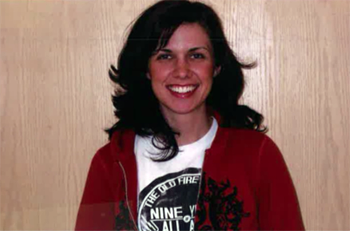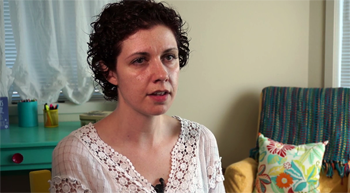By H. Rex Greene, M.D.

Maggie’s Story is another cautionary tale of the scientific and ethical gray zone of “assisted reproduction.” In her early twenties, she made ten egg “donations” and received minimal compensation. At age thirty-two she presented with stage IV breast cancer. Did she understand the risks of egg donation?
As a healthy, normal volunteer it’s unclear if ANY risks are acceptable, but per her description she wasn’t adequately informed of risks. Hence, she did not give informed consent for multiple procedures that may have led to cancer. Breast, ovarian, and colon cancer have been reported in egg donors. This is a bigger issue than a mercenary clinic violating informed consent to support its business model, an obvious conflict of interest.
Who stood up for her? Who was her ombudsman? Maggie’s case illustrates mercenary manipulation of a kind-hearted, generous young woman, who received a pittance in compensation for a very valuable commodity, her eggs. She was bombarded with multiple requests beyond the established safe limits of six donations because she was a “great donor.” The language was deceptive, great for whom? She likely made hundreds of thousands of dollars for infertility clinics. Her altruism was abused in service of an industry intent on profiting from her donated tissues and not sharing the rewards.

They even exploited ethical prohibitions against “selling” eggs, which is illegal in some other countries. The donor (Maggie) can’t profit; the recipient (the clinic) can be handsomely rewarded. In fact, human tissues are the property of the donor, who is entitled to determine how they are used and receive downstream financial benefits. If society doesn’t want egg farming it’s not a question of how much women get paid for their eggs; the practice must be banned as it inevitably leads to exploitation as in Maggie’s case. She takes the risks. The clinic collects the money.
As Maggie tragically demonstrates, with a relatively new technology the long-term risks are unknown. Why should a healthy, normal individual incur any risk of developing cancer? During the procedure young women are bombarded with hormones to provoke multiple ovulations. Hormone exposures correlate with a number of cancers and the amount of stimulation far exceeds the normal menstrual cycle. In addition, there are other short-term risks, hyper-stimulation syndrome, ovarian rupture, torsion, shock, hypotension and potentially death. But long term it’s reasonable to conclude that immense hormonal stimulation can trigger cancer. Rather than permit these abuses to continue the practice should be banned and other aspects of the infertility industry tightly controlled.
Maggie’s Story Needs To Be Told
By Melinda Tankard Reist
Maggie, a ten-times egg donor in her early twenties, was diagnosed with breast cancer aged 32. It spread to her liver and bones. To hear her speak of her shame “in admitting that I willingly chose to do something that I thought I was informed about…” is heartbreaking. And to then zoom out from the focus on her tragedy, to see the context within the billion dollar fertility industry, becomes enraging.
Maggie emphasizes that she was not coerced to donate her eggs. But clearly she was courted and flattered by the clinic, as one of the “special ones,” as a member of their “donor family.” It did not occur to her to say no to donating again and again, because in her mind she would then be saying “no, I don’t want to help people.” She was never informed that the recipient of her eggs could then sell them. At the time it was an experience of altruism on her part, and what she thought was caring and professional treatment by the fertility clinic.
And she was crushed when, while discussing treatment for her cancer, her own primary care physician told her that the clinic doctors certainly had access to the knowledge that exposure to fertility drugs is known to increase chances of certain types of cancer. This was her first confirmation that “this person I thought cared about me [the clinic doctor] probably was just using me.” Maggie does not accuse, but it is disturbing that her breast lump was initially dismissed; since she was so young, it could not be cancer. She was provided with that first mammogram by the fertility clinic. They also knew she had precancerous cells detected during a pap smear. They nonetheless continued administering fertility drugs and harvesting her eggs.
Judging by the clamor of the fertility industry to criticize her films, we know Jennifer Lahl is onto something. Elizabeth Falker, a lawyer who profits from arranging assisted reproduction contracts, begs: “please don’t see it [Eggsploitation] if you are considering either becoming an egg donor or using an egg donor to build a family.” And she requests that the movie industry does not endorse Lahl’s work. After all, she says, “many a Hollywood family has been created through the gift of egg donation.”
Many others in the fertility industry dismiss the stories in Eggsploitation as being insignificant. They want to reduce women’s experiences to the lesser categories of “anecdotal evidence” and “scare tactics” – ironically, using their own reassuring anecdotal evidence that they have never personally seen a donor die or develop cancer – and women’s stories apparently cannot compete with “scientific evidence.”
The problem is that there is no scientific evidence. There is no long-term data available, and none is being gathered, on the effects of egg donation from healthy, young women. So the ‘informed consent’ process is a sham. Right now, Lahl says, all we have is women’s stories – and the fertility industry wants to keep it that way. So Maggie’s story needs to be told. She tells it courageously and intelligently, objectively, with a clear and balanced hindsight. Watch this film, and those that came before it (Eggsploitation, Anonymous Father’s Day, and Breeders?) to see what it is that the billion dollar fertility business doesn’t want you do know.
To support the valuable work of The Center for Bioethics and Culture Network, who provided this story, go here
https://www.youtube.com/watch?v=Ma3-muozVTY




Maggie’s Story. I have watched it more than once! Beautifully and bravely told.
I’d sure love to know how Maggie is doing.
Thank you for such an informative film.
Comments are closed.